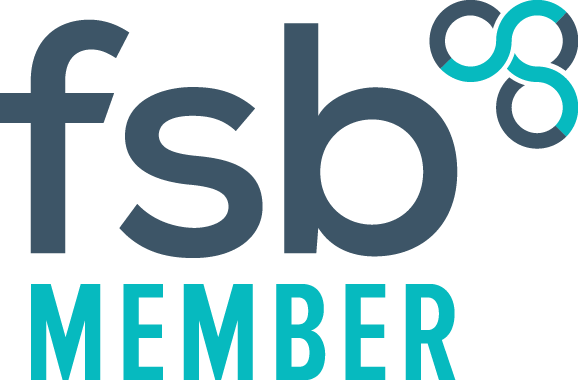AI for Breakfast
Post 160 -
What does a Pollster do?
I asked Perplexity. Here's what I got:
Pollsters play an important role in UK political elections by conducting opinion polls to measure the views and voting intentions of the electorate. Through scientific surveys, pollsters aim to get an accurate snapshot of public opinion that can shed light on which parties and candidates are leading or trailing, and what issues voters care about most.
In the run-up to a general election, pollsters work hard surveying representative samples of potential voters. The two main polling methods are random sampling, where respondents are randomly selected from voter lists or by dialing random phone numbers, and quota sampling, where pollsters seek out specific numbers of respondents to match the demographics of the electorate in terms of age, gender, location, etc.[17]
Pollsters will typically ask voting intention questions like "If there were a general election held tomorrow, which party would you vote for?" They may also probe opinions on party leaders, key election issues, and the likelihood of the respondent turning out to vote. The results are then weighted to account for factors like differential turnout rates among different demographic groups.[15]
Most major UK pollsters like YouGov, Ipsos MORI, Opinium and others are members of the British Polling Council, which requires them to disclose their methods and publish their results publicly.[8] This transparency allows the public and media to evaluate the credibility of different polls. Still, even the most rigorous polls always have a margin of error and can never perfectly predict election outcomes.
Throughout the election campaign, media outlets commission frequent polls to gauge the state of the race. These polls generate many headlines and shape media narratives about which parties have "momentum". Polls can also influence the strategic decisions of parties and candidates.[3] However, some worry that polls can have an outsized impact, for example by driving "bandwagon effects" where voters flock to parties perceived as winning in the polls.[5]
On election day itself, the most prominent pollsters conduct an "exit poll" by surveying voters at representative polling stations across the country after they have cast their ballots. When voting ends at 10pm, the exit poll results are announced and represent the first major clue as to the outcome.[15] While not infallible, exit polls have a strong recent track record of correctly projecting the UK election result.
After the election, pollsters examine their own performance to determine how well their polls anticipated the actual results. While the polls have had some notable misses, like in the 2015 general election[15], on the whole they remain the best tool for understanding public opinion. As one expert put it: "Even though election polls might be seen as old fashioned, they are still the best way of obtaining people's opinions."[5]
So while pollsters cannot perfectly divine election outcomes, their scientific efforts to measure the pulse of the electorate provide invaluable information to politicians, the media and the public in the intense battle for votes that defines UK general elections. The work of pollsters helps illuminate the mood of the nation as it prepares to cast judgment at the ballot box.
Citations:
[1] https://www.electoralcommission.org.uk/guidance-candidates-and-agents-uk-parliamentary-elections-great-britain/polling-day/who-can-support-you-polling-day/polling-agents
[2] https://www.electoralcommission.org.uk/voting-and-elections/work-elections/working-a-polling-station
[3] https://www.instituteforgovernment.org.uk/event/general-election-polling-political-strategy
[4] https://www.sevenoaks.gov.uk/info/20053/elections_and_voting/394/election_job_descriptions/2
[5] https://www.lse.ac.uk/research/research-for-the-world/impact/the-politics-of-polling-why-are-polls-important-during-elections
[6] https://www.ox.ac.uk/news/2024-06-21-expert-comment-professor-jane-green-provides-analysis-uk-2024-general-election-itv
[7] https://www.shropshire.gov.uk/media/3696/job-description-poll-clerk.pdf
[8] https://post.parliament.uk/general-election-polling-in-the-uk/
[9] https://publications.parliament.uk/pa/ld201719/ldselect/ldppdm/106/10608.htm
[10] https://www.plymouth.gov.uk/poll-clerk
[11] https://inews.co.uk/news/general-election-polls-how-work-pollsters-know-3110270
[12] https://www.whitehorsedc.gov.uk/vale-of-white-horse-district-council/local-democracy-and-elections/elections-and-voting/first-time-voters-guide/what-happens-at-a-polling-station-on-election-day/
[13] https://www.electoralcommission.org.uk/voting-and-elections/work-elections
[14] https://www.wyreforestdc.gov.uk/your-council/elections-and-voting/temporary-jobs-in-electoral-services/poll-clerk-job-description/
[15] https://www.bbc.co.uk/news/uk-politics-35350361
[16] https://www.gov.uk/how-to-vote/voting-in-person
[17] https://publications.parliament.uk/pa/ld201719/ldselect/ldppdm/106/10616.htm
[18] https://ukandeu.ac.uk/reports/polling-what-is-it-and-how-does-it-work/








